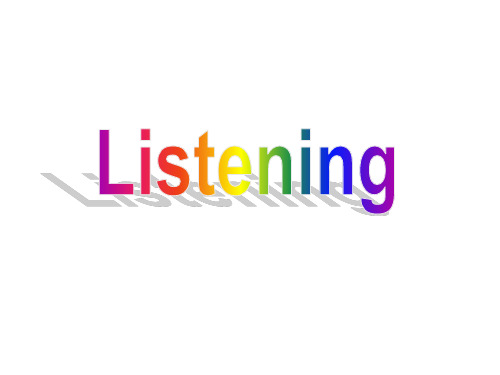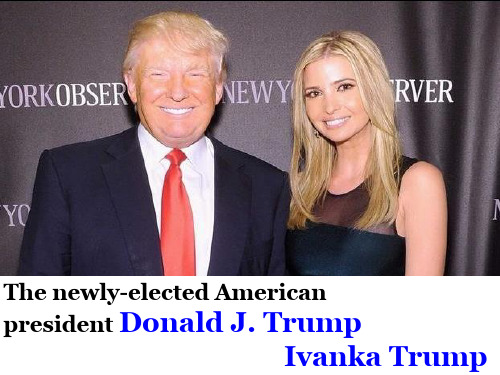外研版高一英语必修一Module5 A Lesson in a Lab
- 格式:doc
- 大小:173.00 KB
- 文档页数:19

外研版高中英语必修1 Module 5《A Lesson in a Lab》(Period 5)word学案学习目标:1. 认识国外学校学习科学的现况2. 学习和了解一些重点单词和词汇的用法表达:lecture,aston ished,used to do,be supposed to do and so on3. 学会如何写一个简单的科学实验报告学习重点:认识国外学校学习科学的现况学习难点:学会如何写一个简单的科学实验报告课前预习使用说明与学法指导:1. 树立跨文化交际意识2. 15分钟之内完成教材助读:预习自测:单词和短语Words: 1. 设备;工具___________2. 演讲_______________3. (大学)科;系____________4. 吃惊的;惊愕的__________5. 发觉 n. _________________Phrases: ed to do ____________ 2.the latest equipment __________3.be supposed to do _________4. be proud of ________________5. science facilities____________6. make discoveries in___________ 我的疑问:_______________________________________________________________________________ ___________________________________________________________课内探究质疑探究:Read the text again and then choose the best answers.1.When did Mark Kendon begin to feel interested in science?A.After he listened to a science lecture.B.After he heard about the Nobel Prize.C.After he changed to a new school.D.After he did an experiment in the lab.2.Who do you think played an important part in making Mark Kendon interested in science?A.His parents. B.The lectures.C.Nobel Prize winners. D.His chemistry teacher.3.It seems that Mark Kendon used to love classes.A.language B.chemistryC.physics D.art4.We can see Mark Kendon’s parents ,when he was determined to go to either Montreal or Ottawa University.A.were greatly surprised B.were very proudC.supported him D.disliked it5.The best title of this passag e is .A.What a SurpriseB.Science Teaching of My New SchoolC.Science,My New InterestD.How to Study ScienceLanguage Points:1.I never used to enjoy science,but last year I changed schools,and the science teachers at my new school are excellent.过去我从不喜爱理科,然而去年我转学了,我新学校的理科老师专门优秀。

Module 5 A Lesson in a LabIntroduction and ReadingI.Teaching aims:1.To learn about some vocabulary and knowledge related to science and experiments2.To know how to do a simple experiment and write the report about it in English3.To raise students’interests in science and form the rigorous scientific attitude.II.Teaching points:1.To make the students understand and grasp the vocabulary and knowledge related to science and experiments2.To enable the students to know how to read some passages about simple scientific experiments3.To make students learn how to write an experiment report in English III.Teaching methods:municative Approach2.Task-based Approach3. Aural-oral Approach with the help of the multi-media computer and the recorderIV.Teaching procedures :Step 1: Lead-inAt first show the students the picture of a lab with the help of computer and ask the students to discuss following questions in groups:1.Are you interested in doing scientific experiments?2.Suppose you want to do a chemical experiment about some metals, do you think it is necessary to know about how they react with other substances?3.In order to carry out an experiment successfully, what should you prepare for it?This step is to warm up the students and raise their interests to speak English in class. Because all these questions are very close to the students’daily life and studying .Step 2: Pre-readingAsk some questions: How much you know about general science ?And How much do you know about general science?How many states does matter exist as? Then read the words about metalstogether.Step 3: ReadingPassage A1. Listen to passage A quickly and choose the best title for it.2. Read passage A carefully and answer1). Which of the metals in the table reacts the most with oxygen and water?2). What happens when you heat calcium in oxygen?3). Which metals react with steam?4). Does iron have a slow or fast reaction with steam?5). Does copper react with water?Passage B1. Some important words about the experiment2. Put these words in the correct order to describe the stages of a scientific experiment.3. Read Passage B, tell the stagesStep 4:DiscussionSince we have known about how to do a scientific experiment, l et’s do a simple experiment to test if magnesium can burn in the air and write a short report.V.HomeworkGo into your science lab and tell your class the apparatus.。




外研版高中英语必修1 Module 5《A Lesson in a Lab》(Period 4)word学案学习目标:1. 把握单元语法:比较级的用法2. 倍数的相关表达方法3. 利用例句归纳出语法规则学习重点:把握单元语法:现在完成时学习难点:利用例句归纳出语法规则课前预习使用说明与学法指导:1. 利用例句归纳出语法规则2. 15分钟之内完成教材助读:话题提分句型Nowadays there seems to be a consensus in society that going to university is the only access to success.Recently the problem has been brought into focus.The truth is quite other than what you think.The truth is quite otherwise./It's far from being true.It is a common phenomenon in society that people are getting politer than they used to be.预习自测:用所给词的适当形式填空1.The earth is fortynine times (large) than the moon.2.The (close) you are,the (much) you’ll see.3.It’s getting and (bright).4.We need rather (much) than that.5.It’ll be a lot (heavy) than magnesium.我的疑问:_______________________________________________________________________________ ___________________________________________________________课内探究质疑探究:形容词和副词表示比较级和最高级的几个重要句型1.“比较级形式+than” 意为“比……更……”。
Module 5 a lesson in a lab单元学案Ⅰ知识点回顾1 .react with ____________ react to __________ react on ____________2.add to ___________ add……….to __________ add up_______ add up to________3.keep out __________ keep out of _______ keep off____________keep down________ keep up _______ keep away __________4. used to do_________ 否定结构_____________5. be proud of sb/ sth / doing ______________________ take proud in_____________________6. find out find填空: We should _____________ who took the machine away.He has _______________ his lost bike.7. put…in order ___________________8. in turn_____________ by turns________________ in return ____________________9. follow sb’s instructions__________________________10.electrical equipment_________________ electric fan__________________11.air-free water__________________ trouble-free areas____________________12.at the top __________________ at the bottom ______________________13.be supposed to do __________________ be supposed to be done_______________________14.go ahead______________ 15.got it ________________ make it____________________16.It’s your turn__________________________17.Keep the noise down__________________________18.Where do we go from here? ________________________________Ⅱ重点句型:1.修饰比较级的词语: a bit / a little / a lot / a great deal / much / rather / any / still / even / far /by far /E.g: Is he ___________ better today? This one is _______________ worse.2.the more… the more… __________________ more an d more_______________________E.g: It is ________________ (越来越冷).The more you read,___________________(你发现越容易).The more you sleep, _________________(你越懒)Ⅲ单词拼写1)Is steel a _________ (混合物) of iron and other substances?2)Professor Wang will give us two _________ (演讲) tomorrow morning.3)The science facilities are very good , with laboratories that have all the latest ________ (设备). 4)After discussing it for several days ,they finally drew a _________ (结论) .5)Montreal and Ottawa University both have good Physics __________(系).6)It’s important to know how they ________(反应) with different substances.7)I saw some fallen leaves ______(漂浮) in the river.8)His parents were ________ (吃惊的) at what he said.9)It’s important for us to keep the ________ (平衡) of nature.10)When you heat a metal ,it ______(膨胀).Ⅳ单项选择1. I am proud ________what I have done.A. forB. inC. ofD. to2. There are only ________natural resources as there were thirty years ago.A. as half muchB. as half manyC. half so muchD. half as many3. Her hair's the same colour ________.A. of her motherB. as her motherC. with her mother'sD. as her mother's4. Would you please put these sentences ________? They are jumbled now.A. in the orderB. in orderC. to the orderD. to order5. Medical experts of China are devoted to ________the ________of SARS and waysof dealing with it.A. finding out; causeB. find out; causeC. finding out; reasonD. find out; reason6. ________you forget it, ________you'll suffer from it.A. Sooner; lessB. The earlier; lessC. The earlier; the lessD. The sooner; the less7. The Great Wall has been ________several times. The repair work is done every year.A. addedB. adding toC. added toD. added in8. You can't, imagine that rats eat 40 to 50 times ________.A. in weightB. by weightC. of weightD. their weight9. Mr Smith is ________a teacher. He is also our good friend.A. onlyB. more thanC. no more thanD. nor more than10. This is the ________model, which has just been developed.A. lateB. latestC. laterD. lately11. We don't do it in this way now, but it ________in this way.A. used to doB. used to be doneC. was used to be doneD. was used to doing12. He ________to come at eight, but in fact he never comes before nine.A. is supposingB. supposesC. is supposedD. supposed13. Look! The ________leaf is floating just like a little plane.A. fallingB. growingC. grownD. fallen14. ________of the forest is covered with trees of broad leaves, while the rest pine trees.A. Three quarters; isB. Three quarters; areC. Three fourths; areD. Three fourth; is15 With a lot of difficult problems ____, the _____ president is having a hard time.A. settling; newly-electedB. to settle; newly-electedC .settled; newly-elected D. to settle; new-elected16 Canadian researchers have shown that the shorter the index finger is , ____ the ringfinger,____ aggressive men are likely to be.A. compared with; moreB. comparing to; the muchC. compared to; the moreD. comparing with; the more17 Make sure that electricity in the lab ___ when you finish doing experiment.A. will be turned offB. have been turned offC. is turned offD. turns off18. _____ production up by 60% , the company has had another excellent year.A. AsB. ForC. WithD. Through19---It was careless ___ you to have left your clothes outside all night.--- My God! _____.A. of; So did IB. for; So did youC. for; So were youD. of; So I did20.The engine of the ship was out of order and the bad weather _____ the helplessness of the crew at sea.A. turned outB. resulted fromC. added toD. made up参考答案:1.mixture 2.lectures 3.equipment 4.conclusion 5.department6.react7.floating8.astonished9.balanced 10.expands 1—5CDDBA 6—10DCABB 11---15BCAAB 16---20 CCCBC。
Module 5 A Lesson in a LabPeriod OneThe General Idea of This PeriodIn this period, we are going to learn to say some large numbers quickly and correctly. And we will learn to use some new words.Teaching Aims1. Learn some words and master their meaning.2. Learn to say large numbers in English. Teaching Important Points1. Train the students’ abilities of listening and speaking.2. Enable the Ss to recognize the numbers, fractions and percentages.Teaching Difficult Point How to improve the students’ speaking ability.Teaching Methods Individual and pair work.Teaching Aids The blackboardTeaching ProceduresStep 1 Lead-inT: Hello, everyone.Now in this unit we are going to learn something about general science and learn howto express the numbers. First of all, let’s learn the new words.(Show them on theBb.)T: OK. Please read the new words and find the Chinese meaning for each word.(The Ss read and look up the words in the vocabulary individually. Teacher makes surethe Ss know the new words. Read the words after the teacher. )Step 2 Choose the correct answers to the quiz.(Teacher asks the Ss to look through Activity 1 and judge which statements are true.The Ss read and tick the possible right sentences.)T: Now listen and check the answers.T: Now listen again and check your answers.Step 3 PracticeT: Put the words in pairs or groups individually. (The Ss work on their own.)Step 4 PracticeT: All the things can be divided into three kinds, that is, natural, man-made, and either natural or man-made. Who can give us some examples?S: Tree or flower is natural. Most of things in our classroom are man-made. Water or electricity can be man-made and natural.T: Good. Now let’s look at the words on the Bb, put them in groups, and answer the questions.(Teacher shows the words on the screen. Have the class repeat them.)Step 5 Vocabulary and speaking(P42&46)1. Look at the numbers. (Show these numbers on the Bb. Ask them to say the numbers. The English2. Look and learn Activity 1 on P42.T: Read the numbers. And find the two mistakes.(This is a good time the Ss learn how to say the large numbers. The teacher walks around the class and offers help when necessary.)S: I’ve found the errors. The first two numbers are misrea d.T: You’re right. But how can you say the numbers?S: Fifty-two million, four hundred and seventy thousand, three hundred and eighty-three. T: Great! What about the second?S: It’s a or one hundred million.T: Good job!3. Look and sayT: Look at the following big numbers and say them in English quickly.55,555 655,555 7,555,505 87,555,500 987,555,500 1,000,000,0004. Listen and writeT: Listen to the following numbers in English and write them down in the Arab letter.① three thousand, five hundred and forty-six 3,546② thirty-three thousand, seven hundred and ninety-six . 33,796③ five hundred and twenty-two thousand, four hundred and eighty-five 522,485④ three million, two hundred and thirty-five thousand 3,235,0005. Look at these fractions in Activity 2 on P42T: Now please say these fractions in English.S: Two fifths. Five eighths. Nine tenths. Three eighths. Five sixths.T: Who can describe the fractions in Activity 2 as percentages?S: One third is the same as 33.33%. (Thirty-three point three three recurring percent.) S: Four-fifths is the same as 80%.S: One-tenth is the same as 10%.S: Three-quarters is the same as 75%.S: One half is the same as 50%.S: Two-thirds is the same as 66.66%. (Sixty-six point six six recurring percent.)S: Two-fifths is the same as 40%.S: Five-eighths is the same as 62.5%.S: Nine-tenths is the same as 90%.S: Three-eighths is the same as 37.5%.S: Five-sixths is the same as 83.33%. (Eighty-three point three three recurring percent.) T: Good! Your mathematics is excellent!6. PracticeT: Let’s turn to Activity 4 on P43. Read these questions aloud and say the numbers.(Put the Ss into pairs and take turns to ask and answer the questions.)1. 3,000,0002. 48,046,0003. 50,000,0004. 265,693,0965. 750,375,0006. 80,000,0007. Look and learn Vocabulary on P46.T: Learn to say the decimals by looking at Part 1 on Page 46.(Give them two minutes. Work on their own first and then say to each other in pairs,paying attention to the numbers before and after point.)T: Now write and say the numbers as decimals.S: 1/2 ((naught)Point five). 2-1/4 (Two point two five). 3/4 ((naught)Point seven five).30-1/2 (Thirty point five). 12-3/10 (Twelve point three).T: Very good! Who can describe them as fractions?S: a half, two and a quarter, three quarters, thirty and a half, twelve and three tenthsStep 6 PracticeT: Work in pairs. Give your partner five sums. Use numbers over a million. Your partner must find the answers. Work out the answers and then say them in words.Step 7 Homework1. Master the new words we have learned in this class.2. Look, listen, speak and write the larger numbers, fractions and percentages.Period TwoThe General Idea of This PeriodIn this period, we’re going to read a passage on the reaction of metals.Teaching Aims1. Improve the students’ ability of reading comprehension.2. Get the students to have a global understanding of the reading passage.3. Train the students to guess the meaning of a word according to the context.Teaching Important Points1. Train the students’ reading ability.2. Get the Ss to understand the reading text. Teaching Difficult Point How to improve the students’ reading ability.Teaching Methods Fast reading and careful reading to understand the passage correctly. Teaching Aids 1. a tape recorder 2. a multimedia computer 3. chalkboardTeaching ProceduresStep 1 Lead-in(Greet the whole class as usual.)T: We are going to do an experiment today. I need these things to do the experiment:test tubes, Bunsen burner, salt ......When we do an experiment, first of all, we should have an aim.We should use proper methods.We should find the result and draw a conclusion.Have you ever done a scientific experiment?What is the correct order of a scientific experiment?(Show the words on the screen.)T: Put the words into correct order.Step 2 MotivationT: As we know quite well, metals are very useful.What are the different uses of metals?What should we know when using metals?Which reacts most with water, potassium or iron?(Show the three questions on the Bb.)You will have a better understanding of metals after reading Passage A.Step 3 Fast reading(Teacher allows the Ss a few minutes to do fast reading.)T: Who has got the answers?S: Different metals have different uses, for example, steel is used in cars and iron is used in electrical equipment.T: What should we know when we use metals?S: When we use metals, it is important to know how they react with different substances.T: So we must be careful when we use metals.Which reacts most with water, potassium or iron?S: Potassium.T: Do we have to keep in mind how metals react with different substances?S: Yes./No need. It’s enough to have some common sense.We’d better leave them to the experts. Better leave them to the people who are interested in this field of science.Step 4 Detailed reading(Read the passage again. Answer the questions in Part 3 on P44.)(1) Potassium, calcium and sodium. (2) It burns to form an oxide.(3) Magnesium, aluminium and zinc. (4) It has a slow reaction. (5) No, it doesn’t.Step 5 Further reading (Exercises in English Weekly)T: Now read Passage A carefully to choose the best title for it.S: The Reactionof Metals is the best title.Step 6 Language points1. It is hard to think of a world without metals.it是形式主语,真正的主语为to think of a world without metals,这是英语中一个很重要的句型。
外研版高一英语必修一Module5 A Lesson in a Lab-Cultural Corner(导学案) 课前预习学案 一、预习目标 预习Cultural Corner,初步认识国外学校学习科学的现况。 二、预习内容 1 Do exercises. 2 Read the text and do Exercise1. 三、提出疑惑 Write down the problems you cannot settle after learning the text independently. (1) (2) 课内探究学案 一、学习目标 1.知识目标 learn and grasp the following important useful new words and expressions in the part: lecture,astonished,used to do,be supposed to do and so on 2.能力目标 1) Improve the ability in reading. 2) Grasp the meaning of the words from the context. 3.情感目标 1) To know about science teaching in Canada. 学习重难点 重点短语用法及如何运用所学知识点解决相关的练习题。 二、学习过程 Ⅰ【知识链接】: Words: 1. 设备;工具_________ 2. 演讲________ 3. (大学)科;系_________ 4. 吃惊的;惊愕的_________ 5. 发现 n. _________ Phrases: 1.used to do ___________ 2.the latest equipment __________ 3.be supposed to do ___________ 4. be proud of _________ 5.science facilities____________ 6. make discoveries in___________ Keys: Words: 1.facilities 2.lecture 3. department 4. amazed 5. discovery Phrases: 1.过去常常做某事 2. 最新的设备 3. 理应或应当做某事 4.以------为自豪 5.科学设备 6. 在某领域做出发现 Ⅱ【自主学习】 部分句子解析: 1. The Noble Prize is the highest scientific prize there is, so we should be very proud of that. 诺贝尔奖是最高的科学奖,所以我们应该为此而感到骄傲。 知识点:be proud of ―为……感到骄傲或自豪‖。相当于:take pride in proud adj. 骄傲的 pride n. 骄傲;引以为自豪的事。 例题:We the prosperity of our country. Key:( C ) A. are proud B. are pride of C. take pride in D. take proud in 2. I’m going to try to go to either Montreal or Ottawa University, as both are supposed to have good Physical Departments. 知识点:be supposed to do sth. ―应当,理应……‖ 如:Teachers are supposed to treat all the students alike. 教师应该对所有学生一视同仁。 提示: be supposed to have done 也可表示虚拟语气,意为―本来应该做某事‖,而实际上没有做,相当于 should have done. (3) 其否定结构:be not supposed to…,常用于口语中,―不被许可,不应当……‖ 翻译句子:你不应该在公共汽车上吸烟。 Key: You are not supposed to smoke on the bus. 3.My parents are astonished. 知识点:astonished adj. 吃惊的;惊愕的 常见短语:be astonished at/by sb. (sth.) ―对……感到惊异‖ 派生词:astonishing ―令人感到惊讶的‖ astonishment n. ―惊讶‖,不可数。常见于以下短语中: ①in astonishment ―惊讶地‖ ②to one’s astonishment ―令某人感到惊讶的是……‖(放在句首作结果状语) 例题:用astonish的正确形式填空: (1) From her look, we saw that she hadn’t expected we had returned so early. Key: astonished (2) To my , it had completely disappeared. Key: astonishment III.【知识巩固】—— 基础题 阅读Cultural Corner中的文章,回答下列问题。(★) 1. When did Mark Kendon enjoy science? A. Before he changed schools. B. After he changed schools. C. When he was a child. D. When he was in Primary school. 2. What did Mark Kendon think of the science facilities of his new school? A. Bad. B. Well. C. Very good. D. Not mentioned. 3. We can infer from the passage that . A. Canada has a small number of first-class scientists. B. the writer has no interest in science till now. C. the writer didn’t like his school. D. the writer wants to study physics at university. 4. Which university does the writer want to go to? A. Montreal or Ottawa University. B. Qinghua University. C. Montreal University. D. Oxford University. 5. What did the writer’s parents think he would become? A. A scientist. B. A doctor. C. An English teacher. D. Not mentioned 三、反思总结 Describe an experiment in our lab and show your composition to your classmates in fornt of the class. ____________________________________________________________________________ ____________________________________________________________________________ ____________________________________________________________________________ 四、当堂检测 单项选择 (★★) 1. He used on the right in China, but he soon got used on the left in England. A. to drive; to drive B. to drive; driving C. to driving; to drive D. to drive; to driving 2. The professor also mentioned an article by Zhu Ziqing. A. supposed to have been written B. supposed to be writing C. supposing to have been written D. supposing to be written 3. –I haven’t heard from Henry for a long time. --What do you suppose to him? A. was happening B. to happen C. has happened D. had happened 4. There is no doubt that her past record is certainly something to . A. take pride B. take pride of C. be proud D. be proud of 5. Either Tom or Peter taking one exam after another. A. hate B. hates C. to hate D. hating Keys: 1. B 2. A 3. C 4. D 5. B 课后练习与提高 Write a composition about the science of foreign schools ,and try to use as many new words as possible in the text. Reading and vocabulary: 1. It is hard to think of a world without medal. 句型分析:It为_________, to think of a--------medal为_________ 句型归纳: It+ be+ adj.+for sb.+ to do sth(该句式中作表语的形容词只能说明不定式的行为性质和特点,说明做某事怎么样,而不说明人如何。常见的形容词有easy、 important、 difficult、 hard、 possible、 impossible necessary等) It + be+ adj.+of sb.+ to do sth(该句式中作表语的形容词为说明人的评价性形容词,表达不定式的逻辑主语的品行性格或性质。常见的形容词:kind、 nice、 good 、honest 、careful、 careless、 wise、 stupid foolish、 rude、 polite、 impolite等) Eg: 1) __________________________________.(对我们来说学好英语是必要的) 2) ____________________________________.(你帮助我学习真是太好了) 3) We all think ________________________to make this mistake.(我们都认为你犯 这样的错误太蠢了) 2 . think of 1).想起,记起 I_________________________(想起我最好的朋友) when I saw the photo. 2) 打算,考虑 I am __________________________(考虑明年去国外) 3)评价,认为 你觉的这部电影怎么样?___________________________________. He is well thought of by his classmates._________________________. 3.It is important to know how they react with different substances. 分析句子:it为_________, to know how------substances为___________ how引导_________从句。 react vi .反应 react with 与------起(化学)反应 react to 对------做出反应、回应